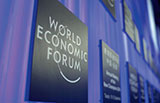Navigating new growth markets
By Zhong Nan (China Daily) Updated: 2015-08-04 08:04"Consumer trends there indicate that buyers go for vehicles they know they can buy spare parts for in the nearest town," said Dong.
"This certainly is a new growth market for us, because we can provide spare parts in sufficient quantities and technical services on time through locally built warehouses and our established logistics and services network. We might be young in this market, but we are quick learners and have gradually moved the industrial chain to this market."
BAIC shipped 45,000 vehicles to various global destinations in the first half of this year, up 31.3 percent from the same period a year earlier. Brazil, Iran, Russia, Indonesia, Nigeria and Angola were its main export markets.
The Chinese company has already built a number of plants, research and development centers in India, Pakistan, Russia, Italy, the Netherlands and the United States, as well as expanded its footprint in various markets along the Belt and Road Initiative routes.
The Silk Road Economic Belt and the 21st Century Maritime Silk Road initiatives were proposed by President Xi Jinping in 2013, with the purpose of rejuvenating the two ancient trading routes and further opening up markets for Chinese companies.
Over the long term, BAIC plans to build seven regional centers in 30 countries. It expects an annual output of 400,000 cars and revenue of 50 billion yuan ($8 billion).
To further upgrade its service level in foreign markets, BAIC's General Manager Zhang Xiyong said the company will not entirely outsource after-sales services to local distributors, but will be involved in specific projects, helping recruit workers, building plants and handling logistics issues.
Eager to grab more market share, BAIC also established an international company and launched its global expansion plan in June, in the footsteps of two major domestic auto groups, FAW Group Corp and Dongfeng Motor Corp, which had already founded their overseas branches.
The new offshore company, established in Hong Kong, is not only a channel for exports but also a means of finding more overseas resources, especially talent, and for mergers and acquisitions. It will carry out financing in the local currencies of the destination markets. The money will be used mainly for overseas investments and acquisitions.
Zhang said the company is conducting research on two European auto brands, which could be springboards for its expansion in Europe.
As a major auto-producing region, Europe has a few brands that are well known yet not operating very well. After Geely Holding Group Co's acquisition of Volvo Car Corp and SAIC's acquisition of MG Rover Group, Chinese automakers have become white knights of sorts for struggling European brands.
"Under such circumstances, they can count on these cash-flush Chinese companies to save them from unhappy financial results," said He Jingtong, a professor of investment at Nankai University in Tianjin.
- 2015 China International Fair for Investment and Trade kicks off in Xiamen
- China's commodity imports robust in Jan-Aug period
- China stocks rebound 2.92%
- 2015 China box office already past 2014 total
- China foreign trade decline widens in August
- Interview: JP Morgan's senior executive bullish on China
- Innovation, development the focus for NZ mayors
- Lives of freelancers

















